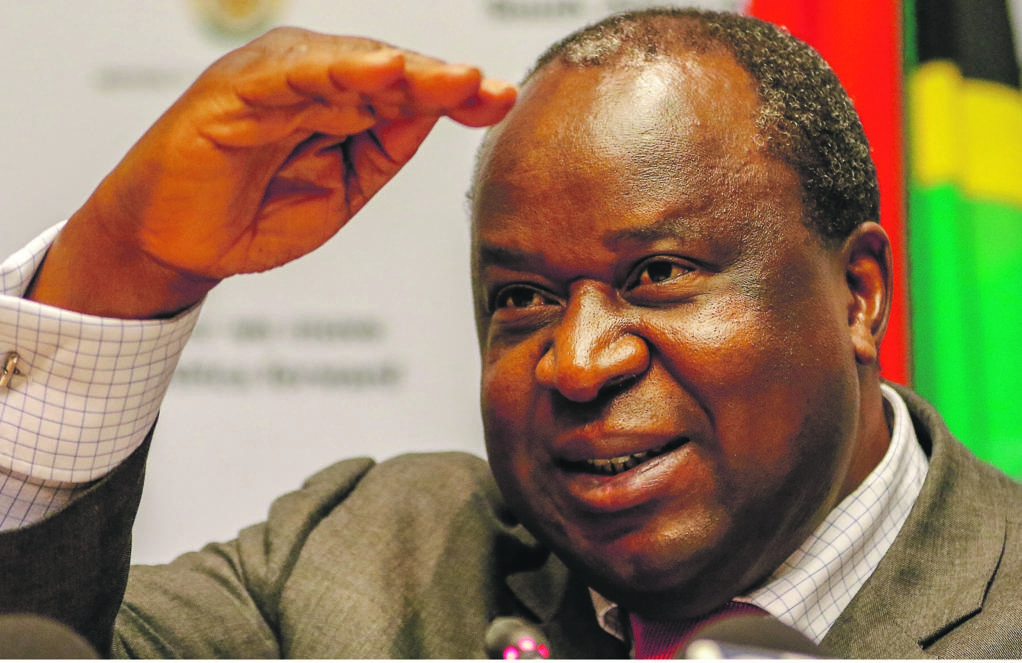
All eyes will be on Finance Minister Tito Mboweni’s medium-term budget policy statement on Wednesday to see how he plans to fill the financial black hole that Eskom’s debt has created on the state’s balance book.
Economists and tax experts have been warning for some time that poor economic growth and the government’s spiralling debt – much of it created by bailing out beleaguered state-owned enterprises – is negative for South Africa’s credit rating.
Moody’s is the only major rating agency that still rates South Africa’s sovereign debt at investment grade.
Kamilla Kaplan, an economist from Investec, warns that if Moody’s is not satisfied with plans for fiscal consolidation in the budget, it could change the credit outlook from stable to negative by as early as Friday.
That could lead to a downgrade in a year’s time which will cause huge capital outflows because most institutional investors are prohibited from investing in government bonds from countries that have sub-investment credit ratings.
Lara Hodes, also from Investec, said that a narrower budget deficit was set out as a key priority in the February budget.
It was expected the budget deficit as a percentage of GDP would be 4.5% in the 2019/20 financial year.
But it’s expected that the deficit has expanded to 6% of GDP – largely as a result of weaker tax revenue collection and higher government expenditure.
The International Monetary Fund recently revised its growth expectation for South Africa downward, from 1.2% to 0.7%.
The SA Reserve Bank expects growth of 0.6%.
Mike Teuchert, head of tax at Mazars, said that Treasury previously expected government debt would be just more than 60% of GDP by 2023/24, but it now appears that it will be higher at 62.2%.
Debt in 2015/16 was only at about 50%.
He said that for the government to decrease its indebtedness, it had to either spend less or collect more revenue.
Hodes said that since 2008/09, government expenditure had repeatedly exceeded its income.
For the financial year to date (April to August) income grew by 4.2% year on year, while expenditure rose 12.6% year on year to R699.1 billion.
This is the biggest growth in expenditure since the world recession in 2008.
Sanisha Packirisamy, an economist with Momentum Investments, said that if revenue collection continues at such a slow pace, the SA Revenue Service could miss its collection target by R97 billion (including, VAT of R27.3 billion and personal income tax of R43.3 billion).
If the seasonality of certain collections and VAT collections are taken into account, the shortfall could be less – about R50 billion.
Teuchert said that if less tax revenue is collected than the target of R1.422 trillion, the minister would have to give an indication of whether spending would be curbed or whether South Africa would borrow more.
If government departments manage to curtail their expenditure in the next three financial years – as Treasury has requested – it could restrict expenditure with R300 billion over three years, said Momentum Investments.
Meanwhile, the government’s plans to limit its public sector wage bill received a frosty reception from the Public Servants’ Association (PSA), which represents more than 240 000 public servants.
The bill makes up about 35% of government expenditure.
Ivan Fredericks, of the PSA, responded to a recent suggestion that public sector salaries be frozen by questioning why public servants should “pay the price for the weak economy, which can be ascribed to widespread maladministration and corruption”.
“While government is quick to blame the state’s high wage bill, there has been little action taken against offenders whose corrupt conduct has forced the economy to its knees.”
Hodes said, hopefully, the minister would give details of the final version of the country’s economic strategy.
Mboweni’s proposed economic policy document, which came to light in August and has been partially supported by the ANC’s national executive committee, proposes reforms which could see the economy grow by 2% or more a year in the next 10 years, said Hodes.
It also aims to create 1 million jobs.




 Publications
Publications
 Partners
Partners









